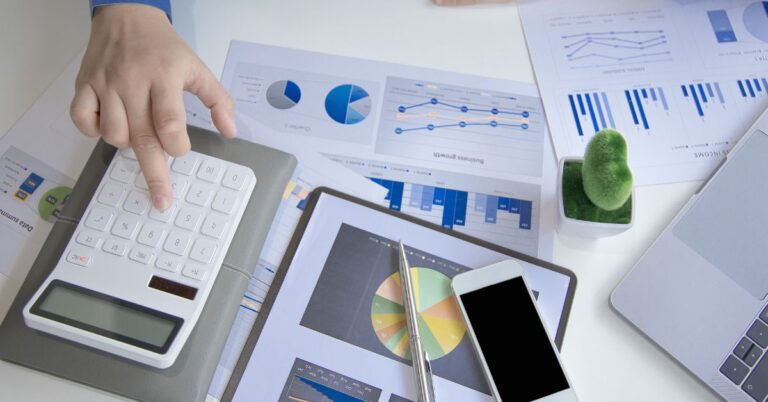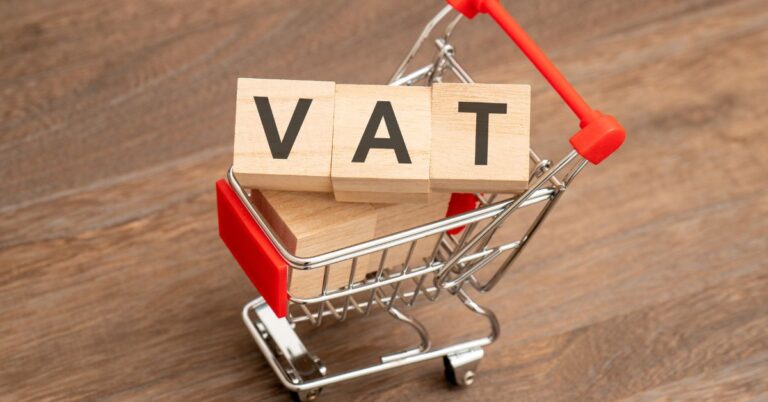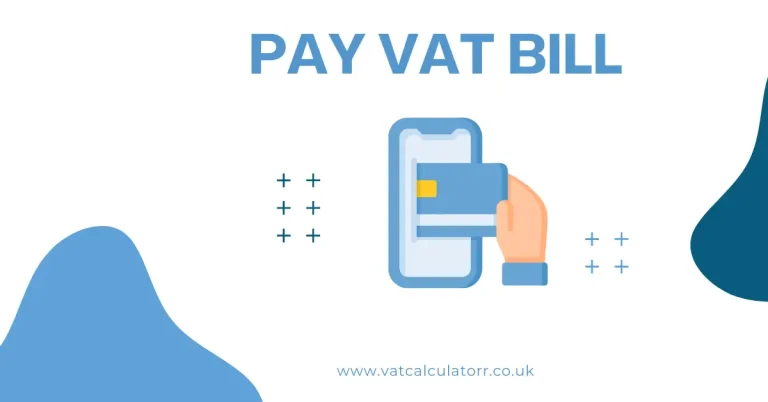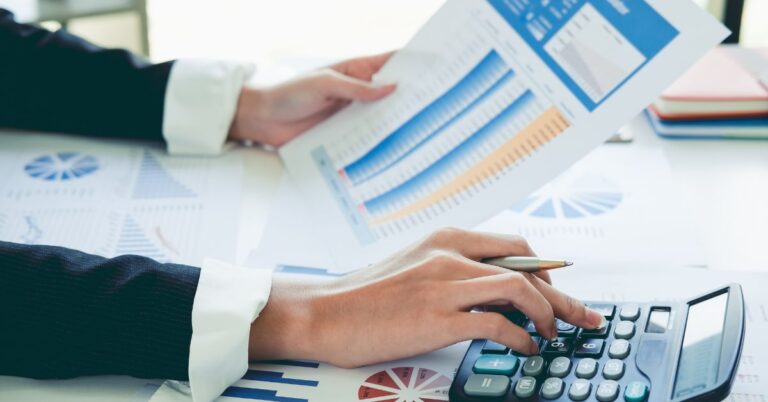Are UK Charities Exempt from Paying VAT?
No, UK charities are not completely exempt from paying VAT. They must pay VAT on standard-rated goods and services, but can claim special relief for certain expenses, like fuel, power, equipment for disabled people, and construction of charitable buildings. The relief applies only when purchases are used for charitable or non-business activities, and charities must provide evidence of their status to suppliers. In short, charities pay VAT like any business unless specific relief applies.
Do UK Charities Have to Pay VAT?
Yes, UK charities must pay VAT on standard-rated goods and services they purchase. Charities pay VAT on all standard-rated goods and services they buy from VAT-registered businesses but do not pay VAT when they buy some goods and services that qualify for relief.
Charities pay VAT on all standard-rated goods and services they buy from VAT-registered businesses. The misconception that charities avoid all VAT costs millions annually.
Charities receive three types of VAT treatment:
- Standard Rate (20%) – Full VAT on office supplies, computers, professional services
- Reduced Rate (5%) – Discounted VAT on fuel, power, construction services
Zero Rate (0%) applies to equipment for disabled people, talking books for blind people, and certain construction work.
Community amateur sports clubs (CASCs) do not qualify for the same VAT reliefs as charities. Sports clubs must pay standard VAT rates on most purchases.
When Must Charities Register for VAT?
Charities must register for VAT when their taxable turnover exceeds £90,000 in 12 months. The VAT registration threshold increased from £85,000 to £90,000 from 1 April 2024.
Taxable turnover includes:
- Sales of goods or services
- Admission fees to events
Taxable turnover excludes donations, grants, and qualifying fundraising events.
What is taxable turnover? Taxable turnover is the total value of everything you sell that is not exempt from VAT. Charities must monitor monthly totals to track registration requirements.
What happens after registration? VAT-registered charities must charge VAT on taxable supplies, submit quarterly returns, and maintain proper records. There are penalties if you fail to register on time.
Can charities register voluntarily? Yes, charities can register for VAT below the £90,000 threshold to reclaim VAT on purchases. This helps charities buying standard-rated goods while selling zero-rated items.
What VAT Relief Can Charities Claim?
Charities can claim reduced VAT rates on fuel, power, construction, and equipment for disabled people. Relief is available whether the charity is VAT-registered or not.
What Fuel and Power Relief Exists?
Charities pay 5% VAT on qualifying fuel and power supplies. The reduced rate applies to residential accommodation, charitable non-business activities, and small-scale use up to 1,000 kilowatt hours of electricity monthly.
Qualifying uses include:
- Care homes and children’s homes
- Free charitable services like soup kitchens
How does the 60% rule work? If less than 60% of the fuel and power is for something that qualifies, you’ll pay the reduced rate of VAT on the qualifying part and the standard rate (20%) on the rest.
What fuels qualify? Qualifying fuel and power includes gases, electricity, oils and solid fuels like coal. Vehicle fuel does not qualify for reduced rates.
What Gets Zero-Rate VAT?
Charities pay 0% VAT on specific equipment and services. Zero-rated items include medical equipment, ambulances, talking books for blind people, and construction of new charity buildings.
What construction work qualifies? Zero-rating applies to the first grant of a major interest in buildings used solely for charitable purposes. Extensions and alterations may also qualify under specific conditions.
What equipment for disabled people qualifies? Equipment designed or adapted for disabled people receives zero-rating. This includes wheelchairs, hearing aids, and specially adapted vehicles.
What Import Relief Exists?
Charities pay no VAT on qualifying imports from outside the UK. Relief applies to goods benefiting people in need, including basic necessities, disaster relief items, and equipment for charitable use.
Qualifying imports include:
- Basic necessities like food, medicines, clothing
- Equipment for disaster relief
What about EU imports? VAT-registered charities in Northern Ireland that buy goods in member states of the EU must account for any VAT due on acquisitions at the appropriate UK VAT rate.
How Do Charities Claim VAT Relief?
Charities must provide evidence of charitable status to claim VAT relief. Charities must prove to suppliers that they are eligible for relief and do not need to be VAT-registered to claim it.
Required evidence includes:
- Charity Commission registration number
- HMRC recognition letter
What must suppliers receive? Suppliers need written declarations from charities confirming eligibility for relief before applying reduced rates. The supplier bears responsibility for applying correct VAT rates.
What declarations are needed? Written declarations must certify that conditions have been met for specific relief claims. Templates are available from HMRC for common relief scenarios.
Can charities get retrospective relief? Charities can claim refunds for VAT overpayments made within four years if they paid standard rates on goods available at lower or zero rates.
Can Charities Reclaim VAT?
VAT-registered charities can reclaim VAT on purchases relating to taxable business activities. Charities cannot reclaim VAT on goods and services purchased for exempt business activities.
What is partial exemption? Partial exemption applies when charities make both taxable and exempt supplies. Complex calculations determine the proportion of VAT that can be reclaimed.
What is the de minimis rule? If the total exempt input tax is below the de minimis limit, then the charity can reclaim it. This helps charities with small amounts of exempt activity.
How do VAT returns work? VAT-registered charities complete returns every 3 months detailing VAT charged on sales and VAT paid on purchases. Refunds are available when input VAT exceeds output VAT.
What Are Common Charity VAT Mistakes?
The biggest mistake is assuming all charitable activities are VAT-free. Many charitable activities count as business for VAT purposes even when conducted for charitable aims.
Common errors include:
- Missing fuel and power relief opportunities
- Paying standard rates on qualifying construction work
What changed in 2022? HMRC changed its tests for assessing whether an activity was business or non-business activity in June 2022. The updated tests are more restrictive about non-business classifications.
What business activities include? Business activities for VAT purposes include selling goods, providing services for payment, and renting property. Charitable purpose does not remove business classification.
What about advertising costs? Advertising to registered charities is zero-rated, but trading subsidiaries owned by charities must pay VAT on advertising costs.
Do Charity Shops Charge VAT?
VAT-registered charity shops must charge VAT on most goods they sell. Some donated goods may qualify for zero-rating, but charity shops operate under standard business VAT rules.
What about second-hand goods? Second-hand goods sold by charity shops are usually standard-rated for VAT. Special schemes may apply for specific items like books or antiques.
Do charity trading subsidiaries get relief? Most VAT reliefs available to charities are not available to subsidiary trading companies. Trading companies must pay standard VAT rates on most purchases.
What is VAT grouping? Charities and trading subsidiaries may register as a VAT group under certain conditions. This allows supplies between group members without VAT charges.
What Are Fundraising Event VAT Rules?
Fundraising events organized by charities qualify for VAT exemption. Charities can hold up to 15 events of the same type at the same location per financial year.
Qualifying events include charity dinners, car boot sales, and auction nights. What happens after 15 events? If 16 or more events are held in a financial year, then none of the events qualify for exemption.
What counts as the same type? Events of the same type include multiple car boot sales or multiple charity dinners. Different event types count separately for the 15-event limit.
Do online events qualify? Online fundraising events may qualify for exemption if they meet standard fundraising event criteria. Professional advice is recommended for digital fundraising activities.
How Often Do Charities File VAT Returns?
VAT-registered charities must file returns every three months. Returns show VAT charged on sales, VAT paid on purchases, and amounts owed to or from HMRC.
What is Making Tax Digital? Since April 2019, VAT-registered charities must comply with Making Tax Digital reporting requirements. Paper returns are no longer acceptable.
What software is needed? Making Tax Digital requires compatible software to submit returns electronically. Free software options are available from HMRC and commercial providers.
What about penalties? Interest and penalties can be payable for late registration and late VAT return submissions. Automatic penalties apply for late filing.
What Records Must Charities Keep?
Charities must maintain VAT records for six years. Required records include sales invoices, purchase receipts, evidence of charitable status, and VAT relief declarations.
What specific records are needed?
Records must include all business transactions, VAT calculations, and supporting evidence for relief claims. Bank statements and financial accounts provide additional support.
Are digital records acceptable?
Digital records are acceptable but must remain accessible throughout the retention period. Cloud storage and electronic filing systems meet HMRC requirements.
What happens during inspections?
The time limit for correcting errors is four years for both charity corrections and VAT assessments from visiting officers.
Can Charities Get VAT Refunds?
Charities can claim refunds for VAT overpayments made within four years. Contact suppliers first for credit notes, then approach HMRC for direct refunds if necessary.
What refunds are available?
Refunds cover standard-rate VAT paid on goods and services qualifying for reduced or zero rates. Construction work and fuel supplies offer significant refund opportunities.
How do refund claims work?
Suppliers should issue credit notes for incorrect VAT charges. HMRC handles direct refund claims when suppliers cannot provide corrections.
What documentation is needed?
Refund claims need original invoices, evidence of charitable status, and proof that reduced rates should have applied. Professional advice helps maximize successful claims.
What About International Charity Work?
Charities providing free aid overseas can treat supplies as zero-rated business activities. This allows VAT reclaim on associated costs for international charitable work.
What qualifies as aid?
Free supplies of goods outside the UK for charitable purposes qualify as zero-rated supplies. This includes disaster relief and development aid.
Do cross-border rules apply?
Cross-border VAT obligations vary by country and may require separate registrations for charities operating internationally. EU rules differ from other international operations.
What about import duties?
Charities may claim relief from VAT on imports under specific conditions detailed in Notice 317.
When Should Charities Get VAT Advice?
Charities approaching £90,000 turnover should seek professional VAT guidance. Expert advice helps with identifying available relief opportunities and setting up compliant VAT systems.
What can advisers help with?
Professional advisers can review charity activities, identify VAT relief opportunities, claim overpaid VAT, and handle HMRC disputes.
When is advice most valuable?
Advice is most valuable before major construction projects, international expansion, or significant changes to charity activities. Early advice prevents costly mistakes.
What about VAT health checks?
VAT health checks review current practices, identify errors, and recommend improvements. Many charities discover significant savings through professional reviews.
What Changes Are Coming?
VAT rules for charities continue evolving with regular updates from HMRC. Recent changes include the increased registration threshold and updated business activity tests.
What should charities monitor? Charities should monitor changes to registration thresholds, relief criteria, and business activity definitions. Professional updates help maintain compliance.
How do charities stay informed? Subscribe to HMRC updates, professional body newsletters, and charity sector publications. Annual reviews help identify new opportunities and obligations.
Final Thoughts
UK charities face standard VAT obligations with specific relief opportunities. The £90,000 registration threshold applies to taxable turnover, while relief covers fuel, construction, and equipment for disabled people.
Key points for charity VAT compliance:
- Register for VAT when taxable turnover exceeds £90,000
- Claim 5% VAT on qualifying fuel and power supplies
Proper documentation and professional advice help charities maximize VAT relief while maintaining compliance. For VAT calculations and rate applications, use our VAT calculator and check our guide on how to get a VAT number in the UK for registration guidance.VAT compliance requires ongoing attention as rules change and charity activities evolve. Professional support helps charities focus on their charitable mission while meeting tax obligations efficiently.





